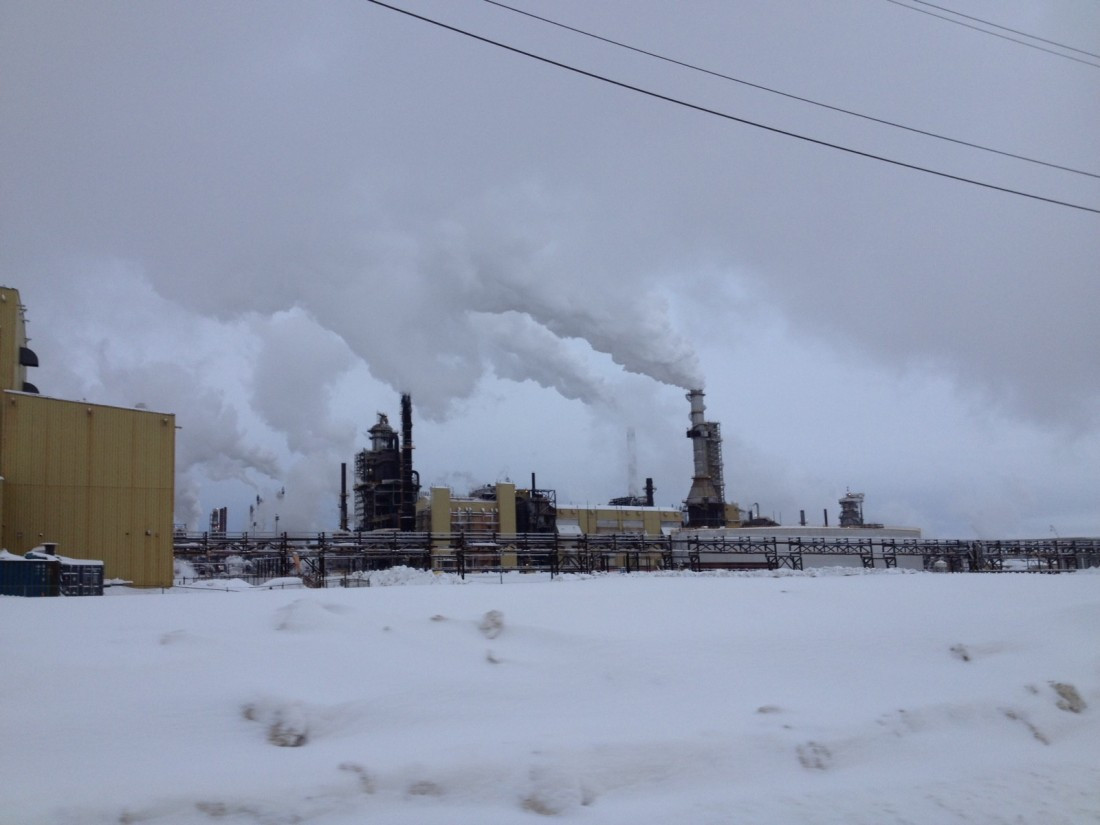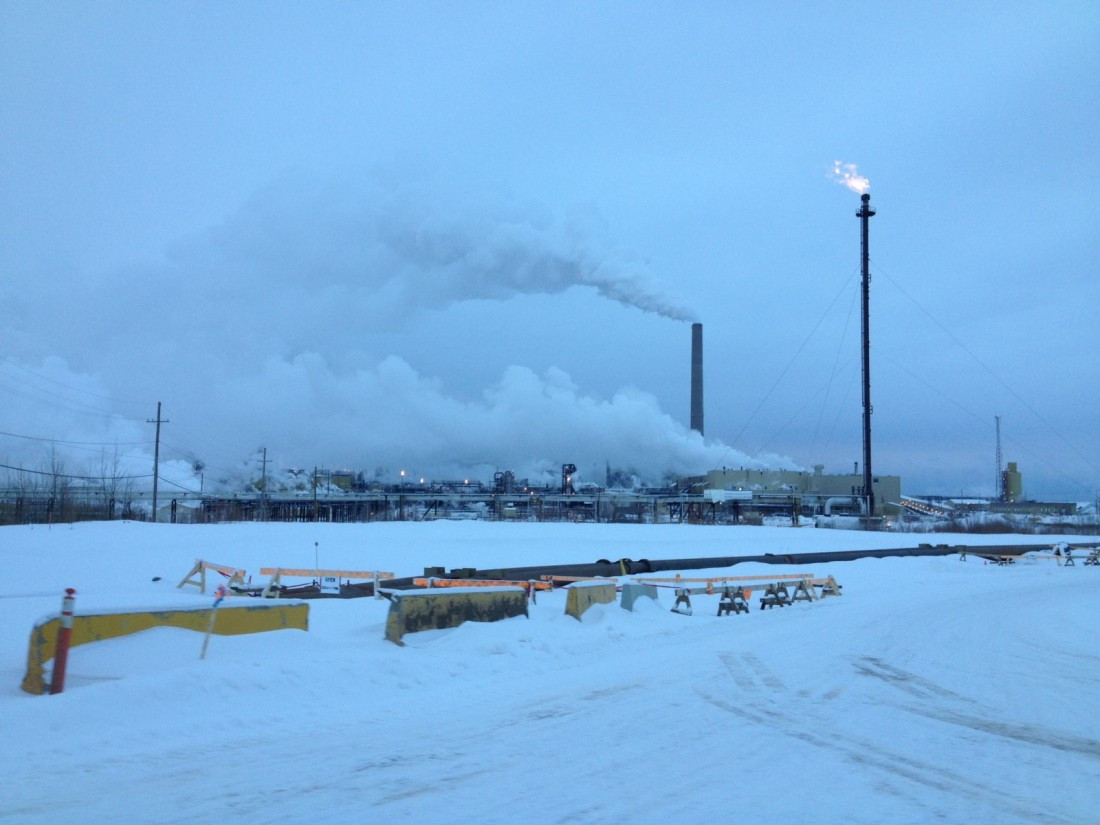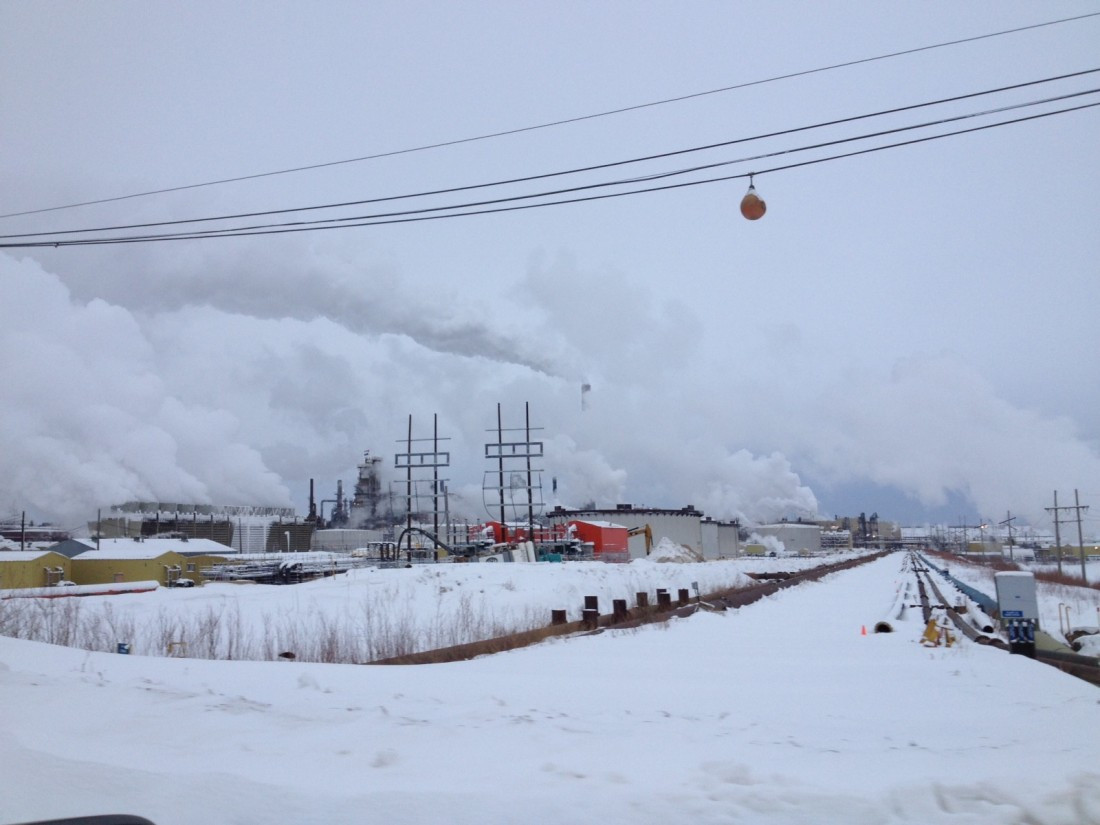Fort Mac firsthand
A worker’s perspective
Fabian: over the past few months, whenever I read articles critical of Canada's oil industry, I've noticed that rarely are the voices of the workers acknowledged or mentioned. Mitch Glenn and I sat down with our friend Aaron Jones, who's been working in Alberta for the past several months to discuss labour and the environment with someone who has lived the experience. Aaron is by no means representative of all workers in Alberta.
Everybody needs oil, everybody knows it. This is why people working on pipelines and rigs are making so much money. It's so valuable, and people are willing to pay whatever they have to pay to get it done. St. John's is a similar example because fish was a huge national resource. All these people went to the East Coast, fished all the cod away, then they all had to go look for work. You probably have these old guys who've been looking for work for years, and their buddies go to the pipeline – why wouldn't they follow them?
Or imagine having four kids and you're 25 years-old. You're broken up, you're paying child support, you have to make money, you don't have a degree. Your buddy says he'll get you a job. $30 an hour, 70 hours a week. You'd be crazy to say no to that. You'd at least give it a shot.
If there's competitive industry, similar jobs in labour or trades, in another industry, they'd jump on it. It's happened before in Canada. Potash, logging, agriculture, whatever. Nobody wants to work in the oil sands. It's a dirty place. Nobody wants to be there. People would work in a cleaner industry, in a cleaner place... if there are jobs, and as long as the pay is the same.
You can't convince a dude from Newfoundland who's working in Alberta to work in Ontario for a lower price. No way. The only way they'd go for a lower wage is to be close to home. That's something people care about.
The money is what connects everyone out there. Everyone has a goal, something they're working towards. How they're spending that money might be a different story. But everyone has a reason to be there, a goal for that money.
We had a big meeting, with some CEO-types, where they tell us we can ask them anything we want. Some guys were raising a fuss, especially some old guys from Alberta, asking “All the water we use, where are you getting the water from?” The CEO was answering, but kind of dodging from giving a full answer.
After, their coworkers were ridiculing these old guys, saying, “Why are you giving our bosses a hard time? They're giving us jobs, food, paying for kids to go to college. Why are you messing with that?” He was getting pressure from his coworkers.
I mean, our bosses are not going to say “What we're doing is wrong!” We go back to our provinces, our homes, and people ask us what the oil sands are like, and we repeat this stuff, so they don't want us knowing too much.

On the other hand, everyone there shakes their heads sometimes. Especially guys who've worked there for decades. They know they've been breathing in poison for who knows how long. Workers in the oil sands don't have a problem with the industry – that's too broad. But they have problems with the oil sands' lack of ethical environmental policies.
Sometimes there's a disconnect. If you discuss topics related to the environment in the wrong way, opponents say “Screw you, it's for my family.” But we also know. We're the ones who see it, who see the smoke, breath it in. We clean it out of our fingernails, blow it out of our noses in the shower. People will listen to you if you can relate to them how it's affecting you and the environment.
Everyone who has an environmental studies or a science degree, should get job in the Athabasca region and fight the system from the inside. Standing on the curb in a picket line isn’t enough. Become part of it, befriend the network. Few will listen to an outsider; someone with no experience in the field.
There are better ways to protest the oil sands than to cut off the work force. It depends more on the stubborn old people who own these corporations. We need more environmentally-sound people to take charge of them.
We need research into new industries, and history shows us there are problems with leaving it up to Big Oil. If they don't think they'll profit as much off of a new industry, they're not going to share that research. It needs to be a team effort, between government, companies, students and professors.
It's not impossible to talk to workers and get their support. You could start by asking them how they feel about it. Instead of telling them, ask them. Don’t just attack them for working. There are many goods related to fossil fuels, and a lot of reasons why the workers are there. If you look around your room, there's something that was made with oil products, or that was transported there with fossil fuels. You don't want to make people feel bad about what they're doing. Ask them – if you could keep the benefits, but take away the negatives in a different industry, would you? Most people will say yes: I'll work the same wage, I'll work anywhere for the same wage. I'll work at an ice-cube mine in Antarctica. I don't care.
The oil industry is blatant. You could look at a picture of it and see it has problems. Obviously, anything bad needs to change. But it's not easy. We've built an entire society from this. First and foremost – let’s think about reemployment.
Fabian Suárez-Amaya is studying Education at the University of Winnipeg. Aaron Jones is a scaffolder working outside of Fort McMurray. Mitch Glenn is an apprentice elevator mechanic working in Winnipeg.








